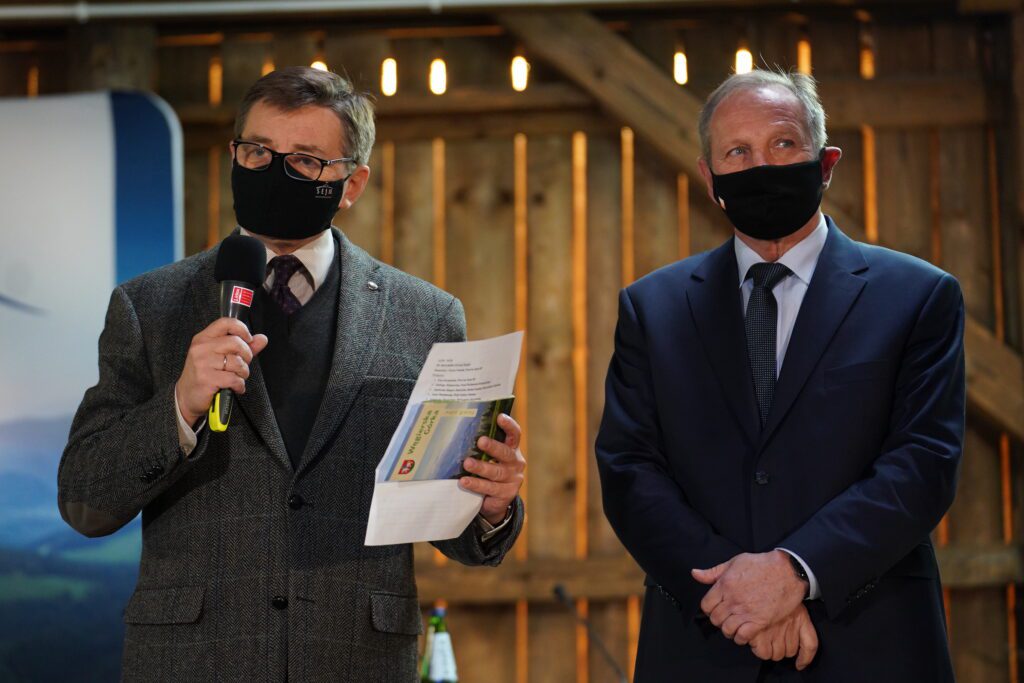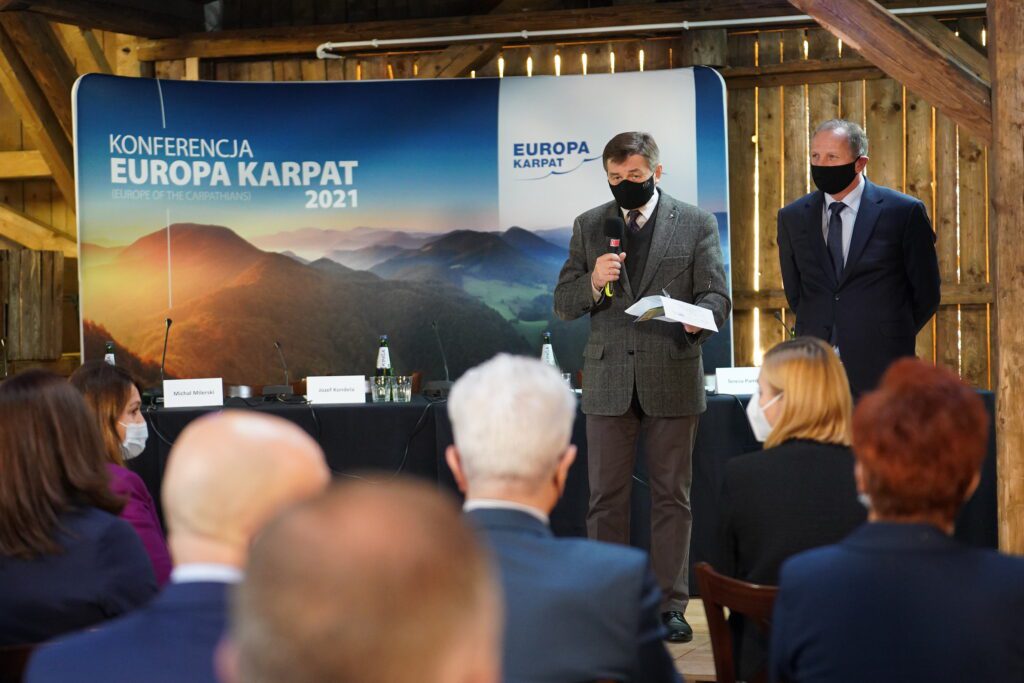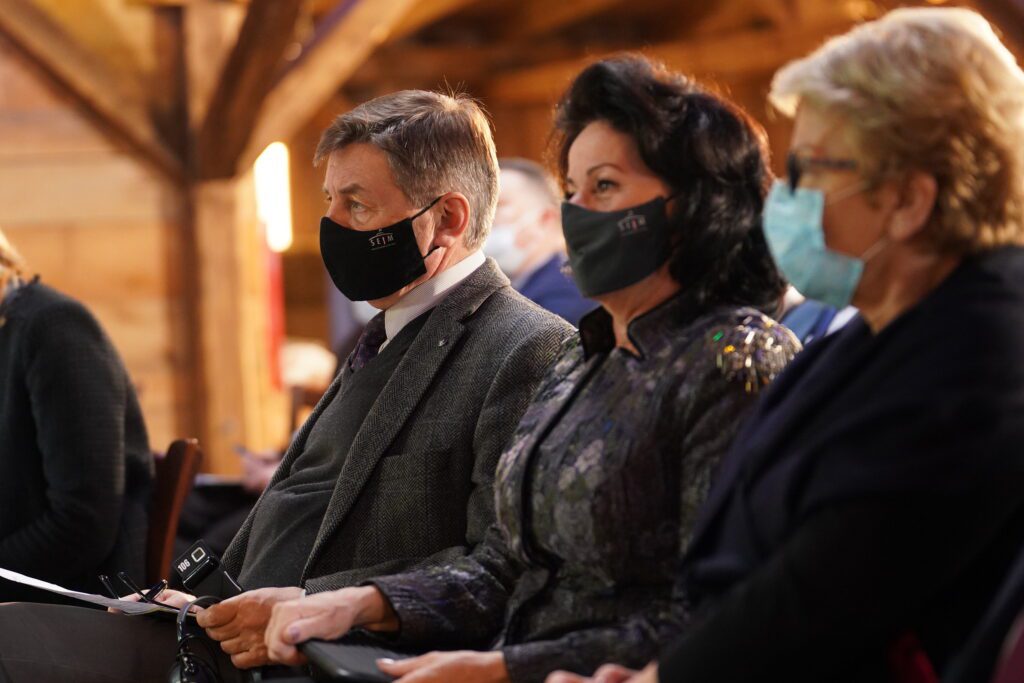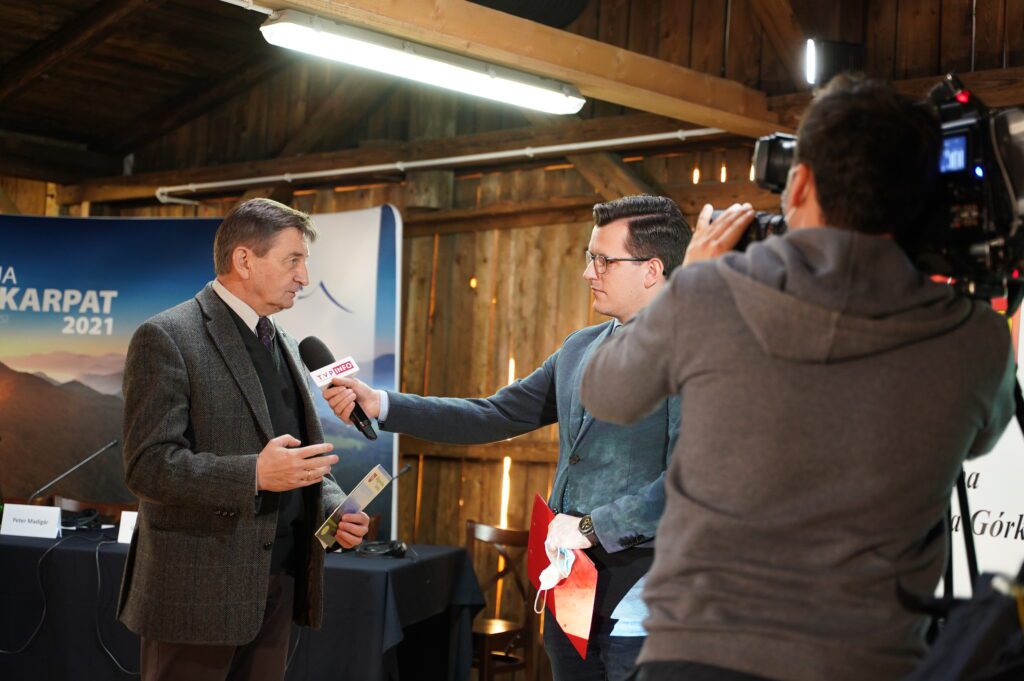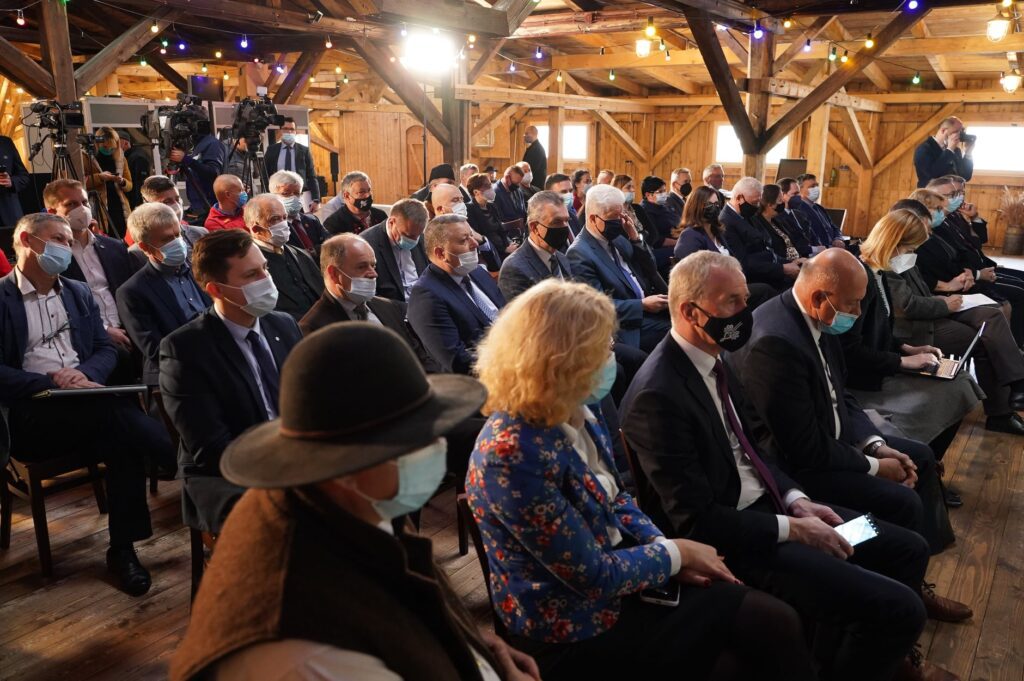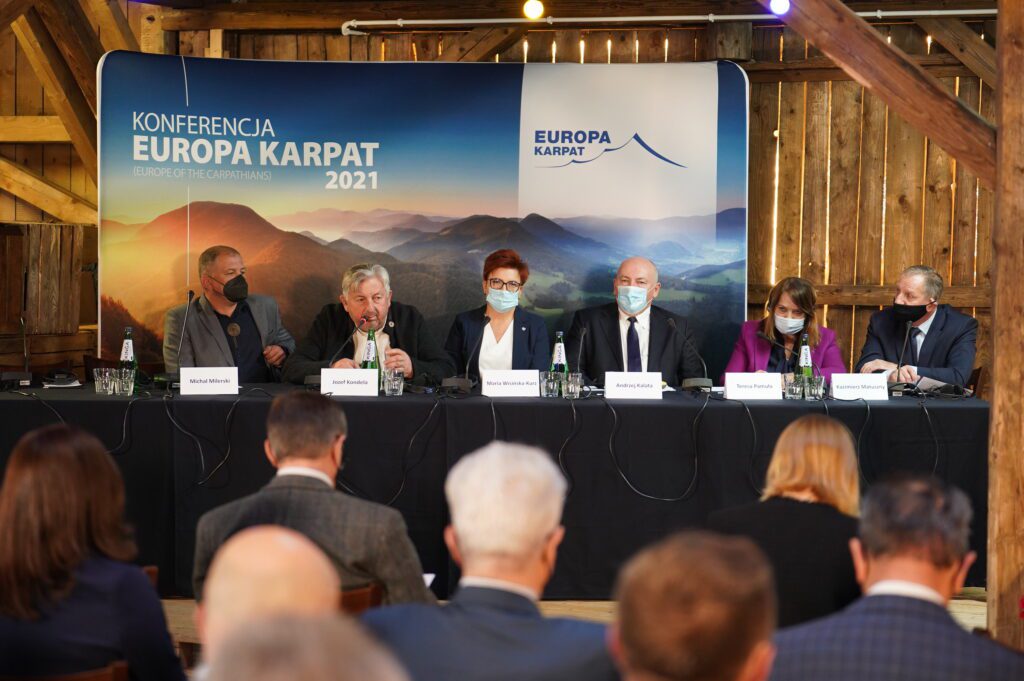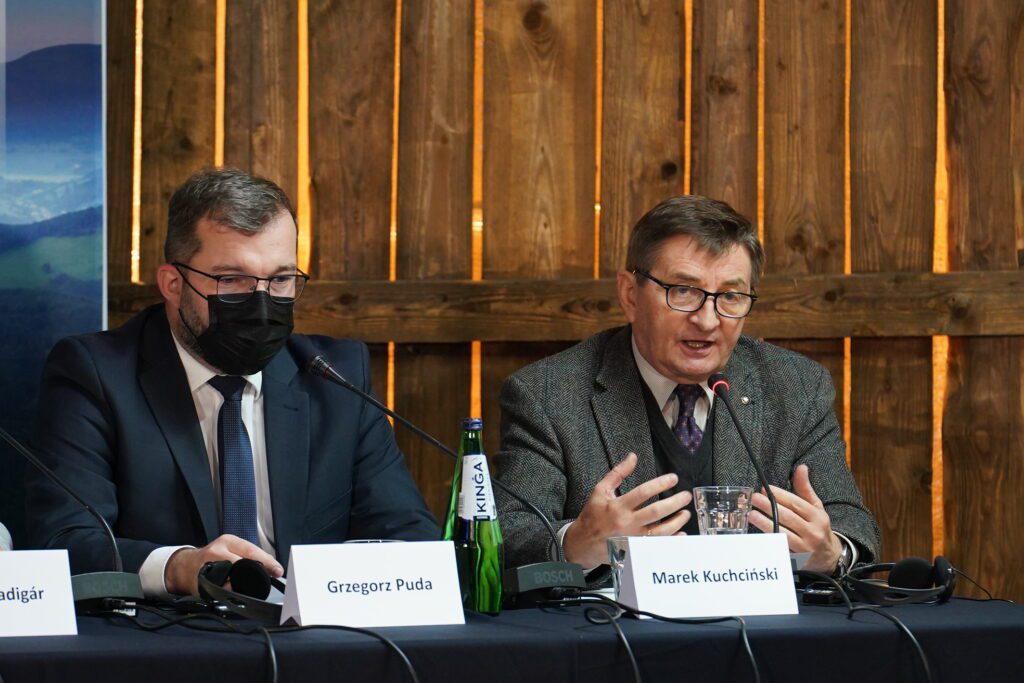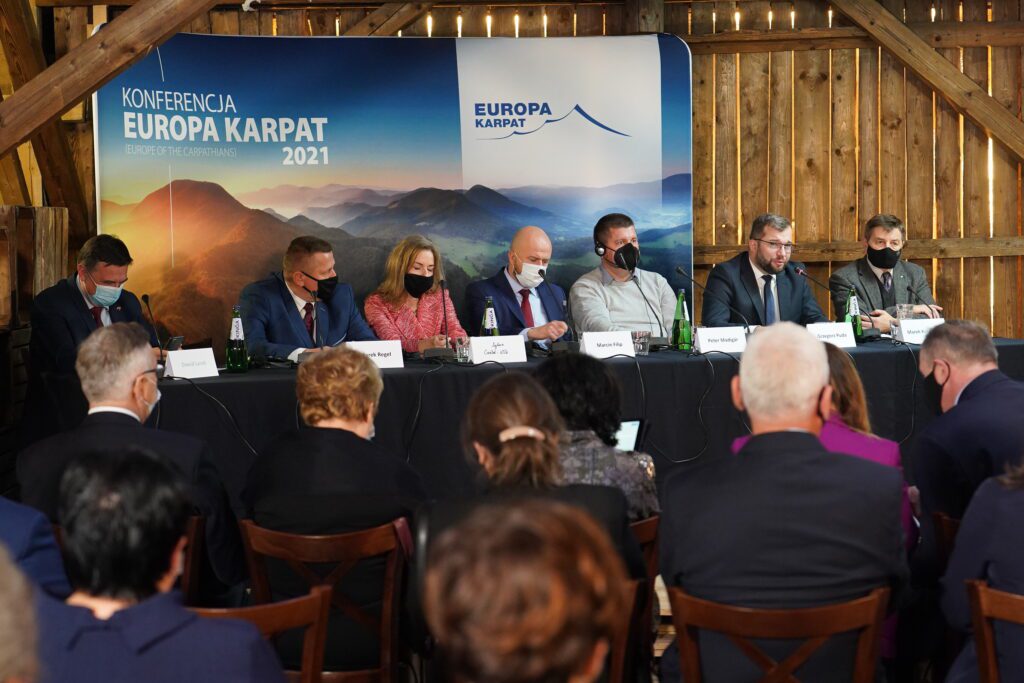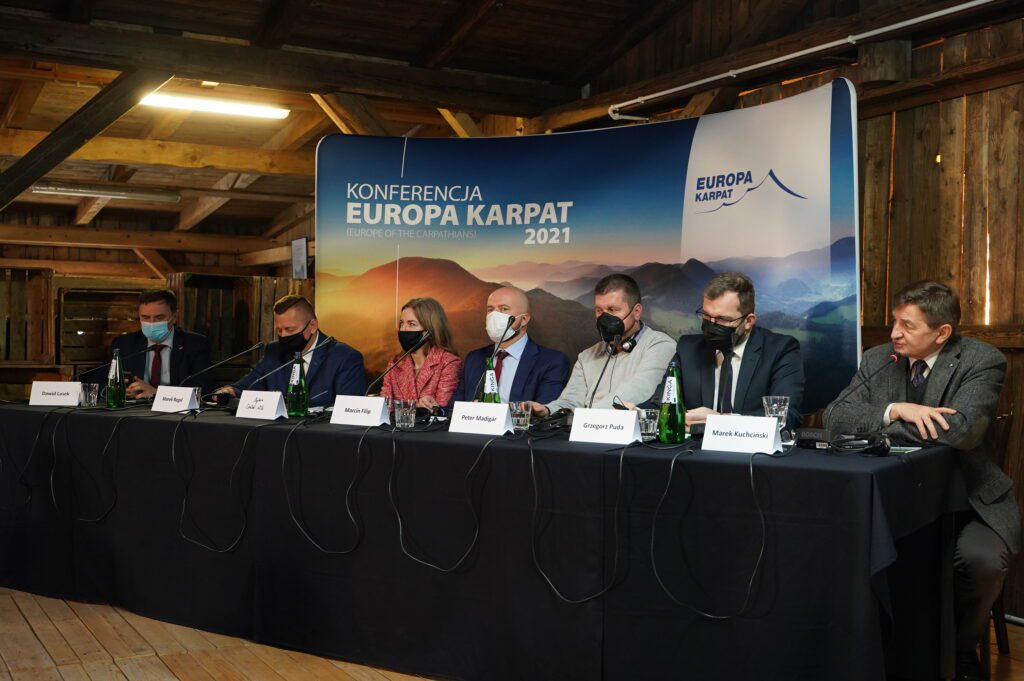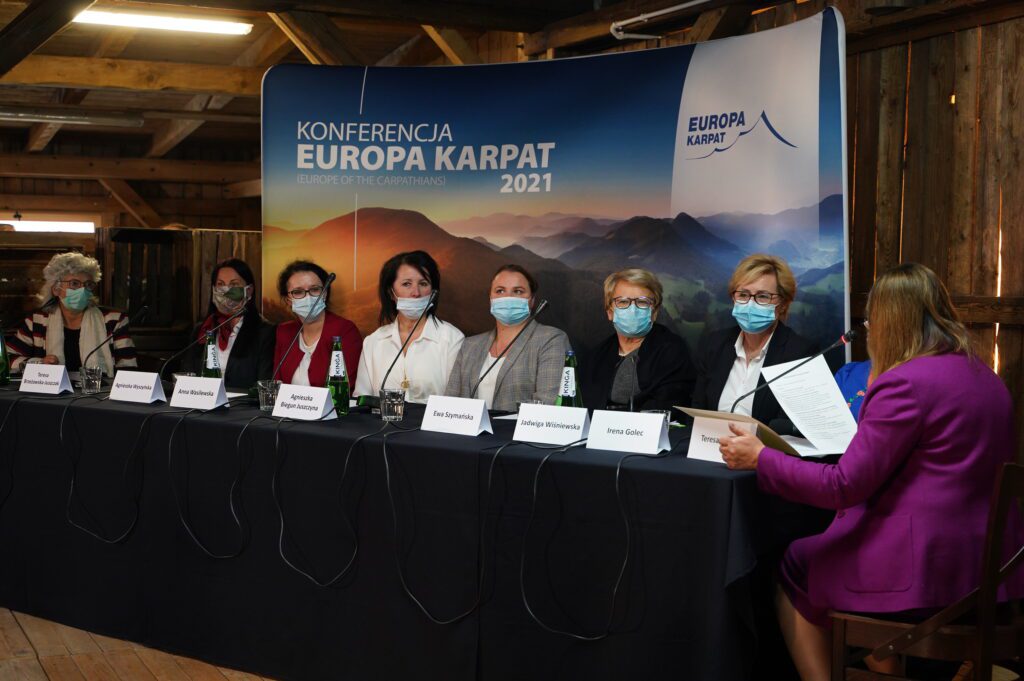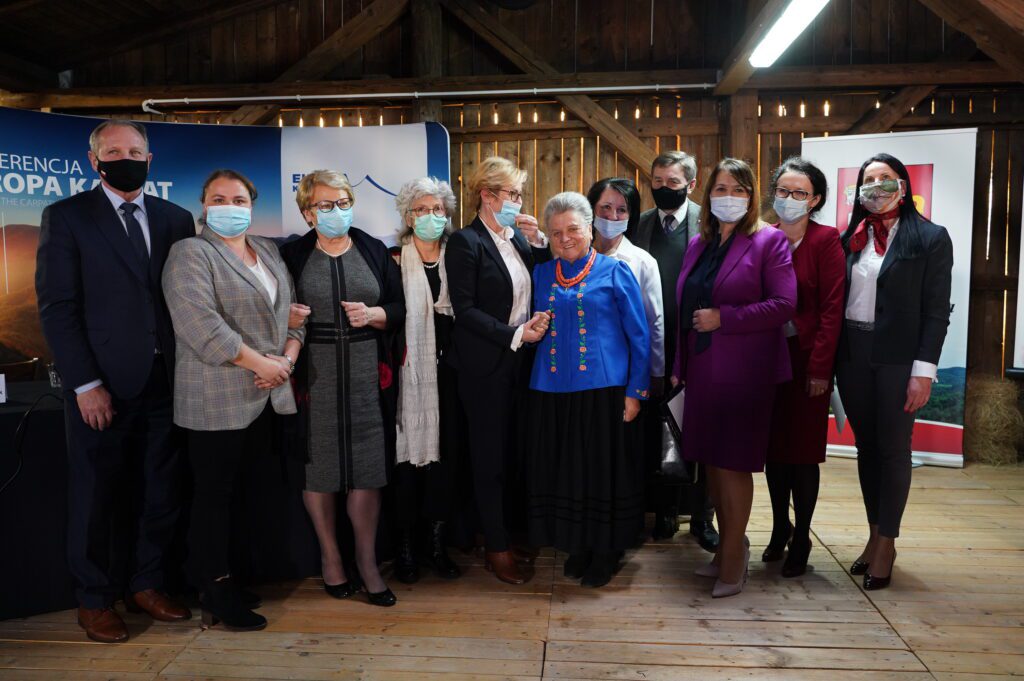On Saturday, 27 November, the 31st edition of the conference "Carpathian Europe" was held in Węgierska Górka (Silesian Voivodeship). The meeting was attended by politicians, scientists, experts and local government officials from the countries of the Carpathian region, including Poland, Slovakia and the Czech Republic. The conference participants discussed, among other things, the directions of development of the Carpathian region, the possibilities of common investment projects. They also discussed the issues of transboundary cooperation, the Carpathian Convention and the integration of the potential of the countries of the Carpathian region. The meeting was hosted by the Chairman of the Parliamentary Commission for Foreign Affairs, former Marshal of the Sejm, Marek Kuchciński.
Development of the Carpathian region - the Mountain Act
In the first panel the speakers discussed the specificity of the mountains, the problems of local governments in the implementation of various investments in mountain areas. - In recent years a lot has been done to develop various areas of Poland in a more sustainable way. Unfortunately there is a very large depopulation in mountain areas. We must prepare appropriate regulations concerning local governments, infrastructure, agricultural production, so that young people would want to stay here - said Teresa Pamuła. - Carpathian Europe shows how to build a good atmosphere from Romania to our area. We can show our tradition, also the problems, but also the solutions that work. The government's support in the field of tradition and culture is significant. Also the funds allocated to local governments and this can be seen in the mountain areas. We support activities related to tourism, agrotourism, for example through water and sewage activities - said Stanisław Szwed, Secretary of State in the Ministry of Family and Social Policy. In turn, according to Michal Milerski from the University of Prague, mountain areas need to preserve traditions. The discussion on this point was moderated by Mr. Kazimierz Matuszny.
European funds in the development of the Carpathians
In the second panel the discussion was led around the aspects related to the development of the Carpathian region, state and European funds allocated for the development of the region. - Today we have a functioning Strategic Investment Program in Poland. One tranche has already been allocated, over 23 billion PLN. This year another one will be announced. Next year two or three. It is worth considering whether it would not be worthwhile to consult our partners in Slovakia and the Czech Republic on the implementation of joint investment projects in the border zone - said Marek Kuchciński, chairman of the SCS, in his speech opening the panel.
The Minister of Funds and Regional Policy, Grzegorz Puda, pointed out that one of the priorities of the ministry's activities is "restoring the value of regional development". - All the time we continue active efforts to adopt a strategy for the Carpathian macro-region. We are striving for EU accession to the Carpathian Convention and for obtaining the support of all the Carpathian countries for the establishment of the Carpathian Strategy. It is also worth noting the possibilities of support from such instruments as the Connecting Europe Horizontal Programme - Minister Puda pointed out. - At present our country presides over the Carpathian Convention and one of the objectives of this 3-year term is for the European Commission and the European Union to join the Convention - he added.
- The Carpathians have several cross-border programmes, they have the neighbourhood instrument Poland-Belarus-Ukraine and one transnational programme. Unfortunately they do not have their own operational programme within the transborder path - deplored vice-president of the Association of Carpathian Euroregion Dawid Lasek. - It is worth looking for bottom-up solutions, building international solutions based on the regional potential - he assessed.
Peter Madigár presented the assumptions of the project Wallachian Culture Route. - This is a unique project. It was financed from the Polish-Slovak Interreg subsidy mechanism Poland - Slovakia. Many self-governments and many different subjects participated in this project. It was about Wallachian Culture, a phenomenon that connects us in our Carpathian space, in the border region. There were investments, but also very many projects and activities that were focused on culture, education. This cross-border cooperation is of great importance and there is a great need to continue these activities both on the Slovak and Polish side - he said.
Carpathian Women's Movement
The third panel was an opportunity to discuss the potential of women in the Carpathian region, family and educational development. In the discussion participated, among others, MP Teresa Pamuła, Ewa Szymańska and European MP Jadwiga Wiśniewska and representatives of local government units from Jeleśnia, Kuryłówka, Tyrawa Wołoska. The discussion was moderated by Teresa Pamuła MP.
Ewa Szymańska spoke about her involvement in the work of the Carpathian Team, as well as her professional, family and political path. Ewa Szymanska. - I grew up in Catholicism, religion and this is how I was brought up. I believe that thanks to this I was fulfilled as a woman, a mother and an activist. This must be cultivated, and here in Silesia, as well as in Podkarpacie, culture and tradition are strongly rooted.
- We have different roles to fulfill and different tasks ahead of us. When we look at what life looks like for a woman who wants to combine her professional life with family life, taking care of her family, it is absolutely very difficult - Jadwiga Wisniewska pointed out. - Here, in this region, everything is arranged. Children have traditions, culture, religion, honor and homeland sucked out of their mother's milk. It is different there. Leftist trends are very strong in the EU - said MEP Wiśniewska.
Agnieszka Biegun, member of the Silesian Regional Assembly, referred to the issue of upbringing and the role of the family. - It is not easy nowadays. Our children often pick up bad habits. And here the family plays a very important role, as it should pass on the most important values - she emphasized.
text: Sejm Information Center
Photo: Łukasz Błasikiewicz/ KS
